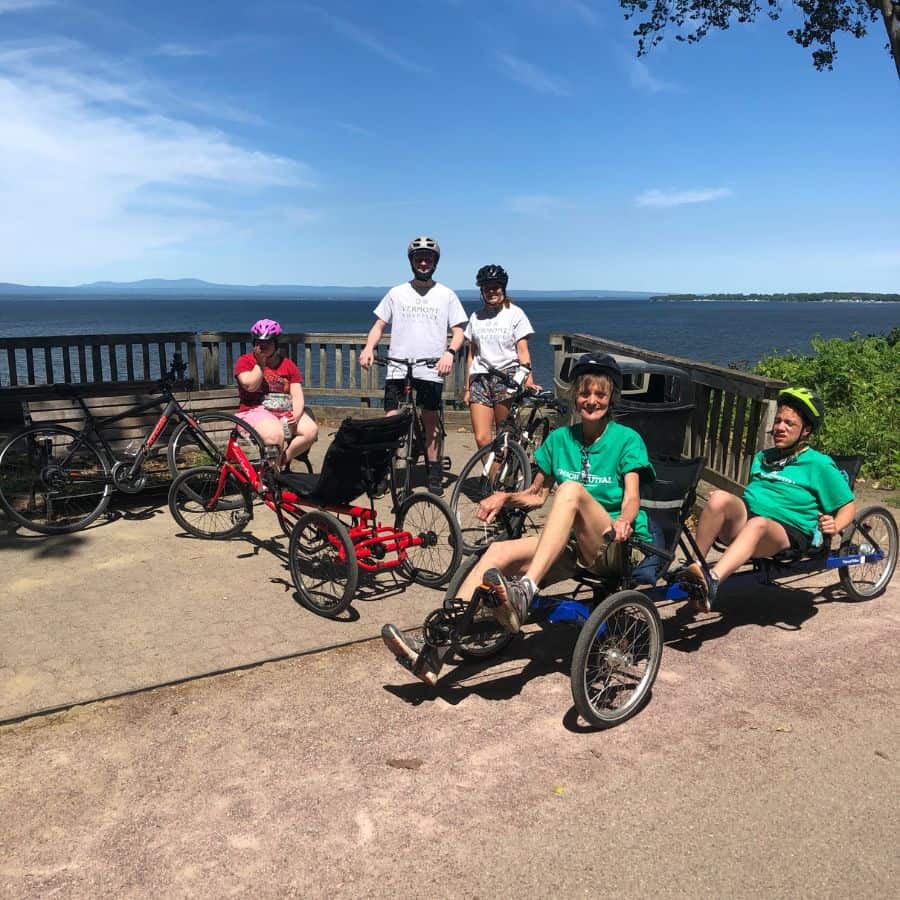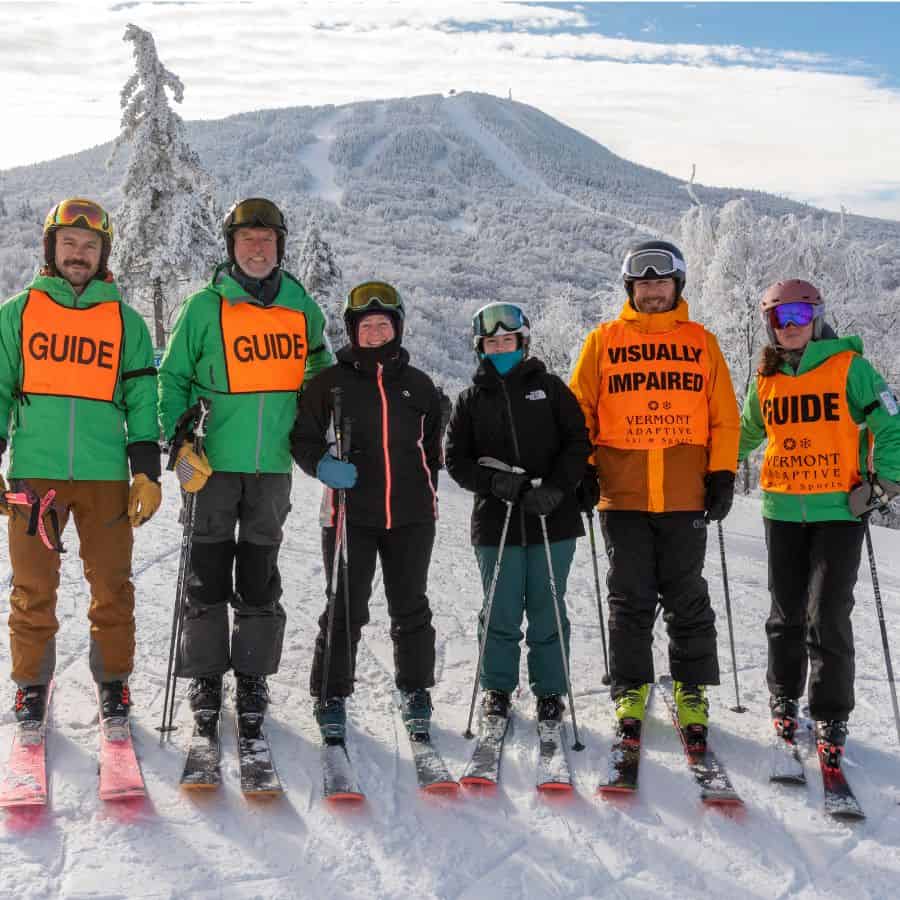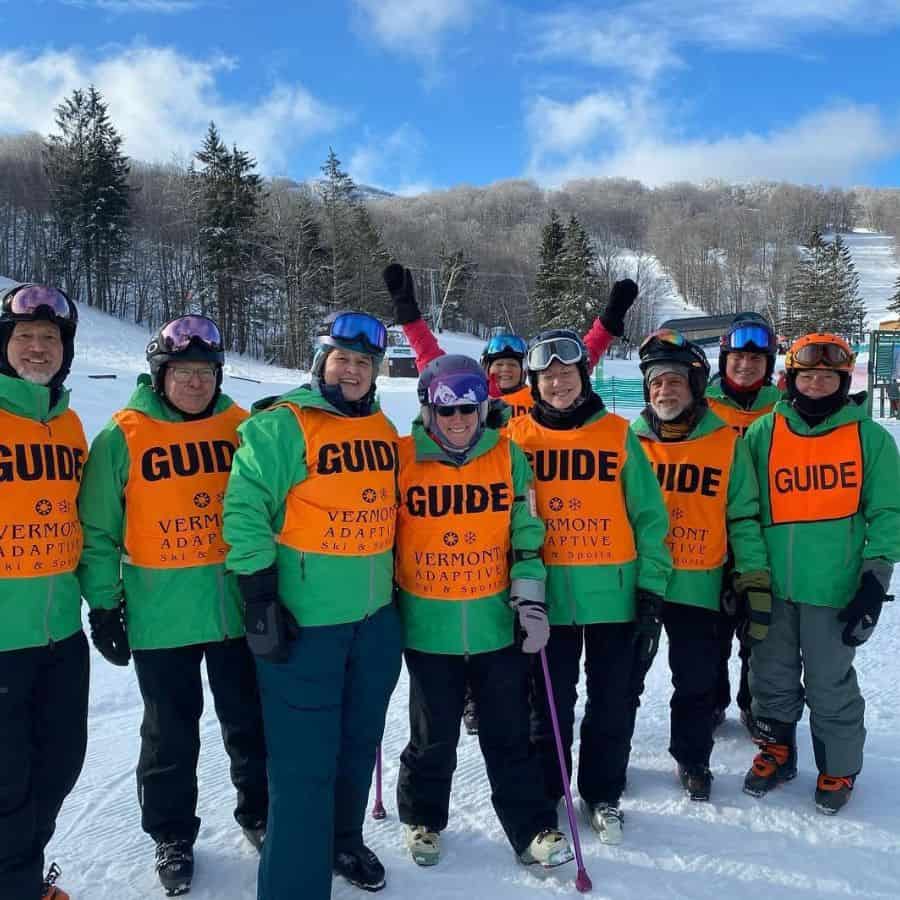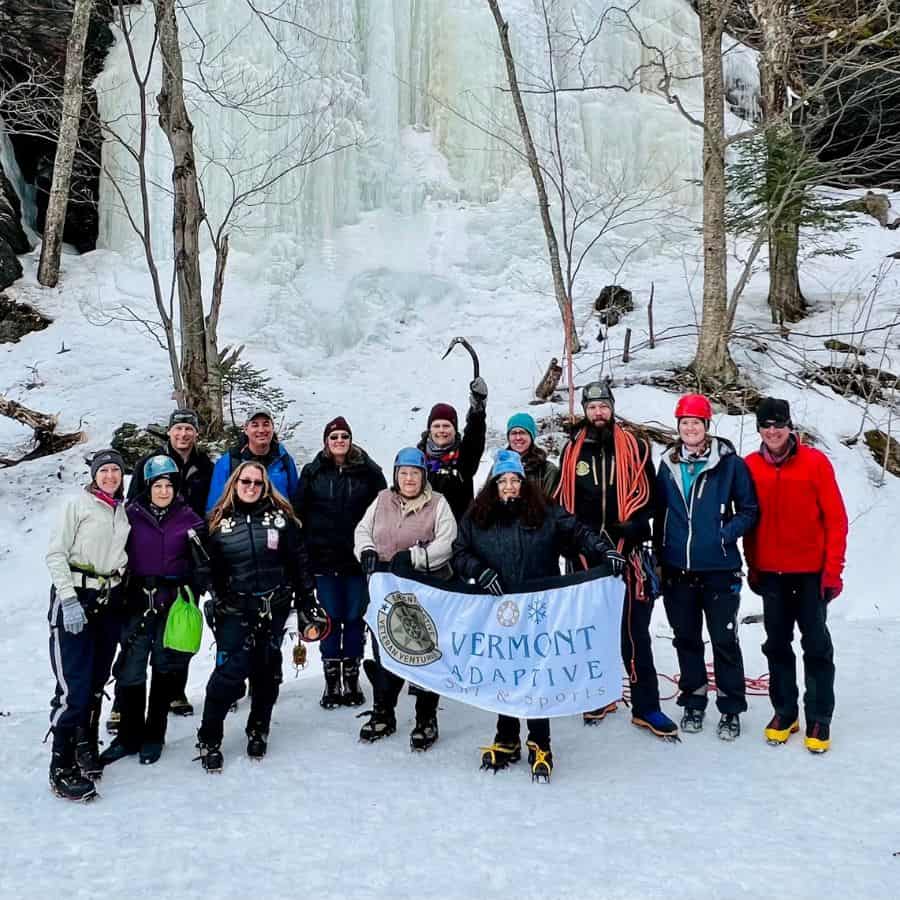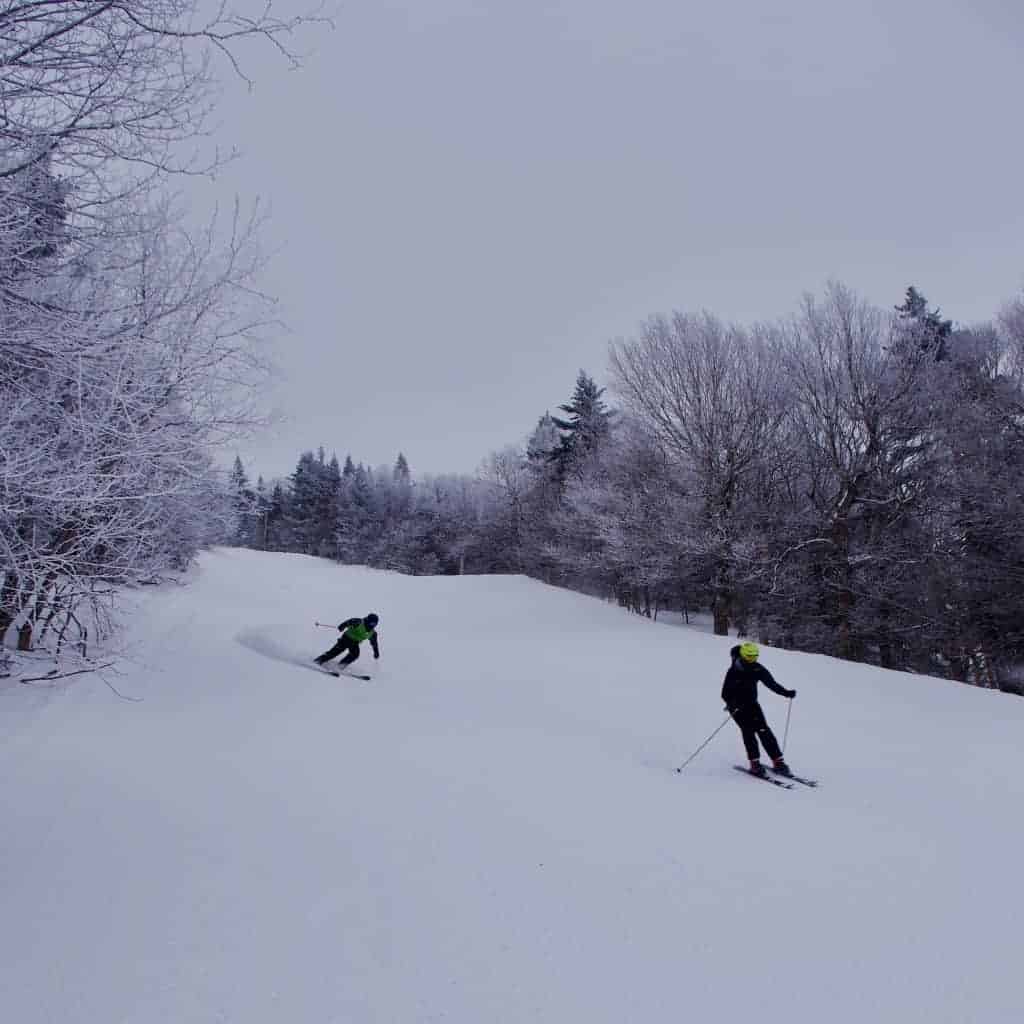By Hunter Hedenberg
When Kyle Easton first started skiing, he absolutely refused to take a black diamond trail. He insisted that they were too dangerous and too difficult. He started skiing when he was eight- or nine-years-old, and continued with Vermont Adaptive until he was 13, never touching one of the steep, challenging runs at Bolton Valley. He loved his lessons and had a great relationship with his instructor, but was not comfortable dropping in on those steeper lines.
“His name was Ken and we had a great bond,” says Kyle, smiling when remembering his instructor “He taught me so much; how to ski with my skis parallel, how to turn, how to control my speed.”
After taking a break from skiing for a few years, Kyle’s twin brother, Cole, convinced him to come back to ski with Vermont Adaptive last winter, and his attitude about those black diamonds changed.
“I’ve been meeting up with an instructor named Ryan. He’s a good buddy of mine,” Kyle explains. “Last winter I did Hard Luck [a black diamond trail at Bolton Valley] once, and now harder trails are all I ski! Let’s just say I’m an adrenaline junkie. I live my life by a quote, and that is ‘you have 3 choices in life, you can either give up, give in, or give it all you got, the choice is yours’.”
When Kyle tells his story, he is sitting at a table in the Bolton Valley base lodge, and laughing about how ridiculous he says he was being when he skied long ago with Ken. Now 17, Kyle may say that he’s an adrenaline junkie but he acts more like a seasoned skier. He has also made the switch from an adaptive athlete, to a weekend Vermont Adaptive volunteer instructor, balancing his volunteer hours with school and courses that he takes in a criminal justice program at a local community college.
For most of his life, Kyle has struggled with anxiety and depression. He used to find it harder to make friends or to be outgoing socially, but says that Vermont Adaptive has helped him with that. He says that his anxiety tends to make him overanalyze small things, and get stuck in patterns of worrying and overthinking, but that feeling goes away when he’s skiing.
“I can’t think about some small detail or something that’s bothering me when I’m skiing down a mountain. I have to think about what I’m doing in the moment. Vermont Adaptive was a good way for me to enjoy the hobby and not worry about what was going on in my head or in the outside world.”
Now that he’s a volunteer instructor, Kyle loves being able to give back to the program that did so much for him. He does still find it challenging. During one lesson, he was skiing with a participant who simply did not want to go down the hill. He says that they stayed on the side of the trail for almost half an hour talking and working on moving down the slope, and Kyle said that since he’s been an athlete with Vermont Adaptive before, he could relate. It was a tough situation, but Kyle thought about when he was an athlete. He remembered the ways that his instructors used to help him, and he used those techniques to help his client. Ultimately what convinced the athlete to keep moving down the hill, was the promise of a lift ride back up with Kyle. His biggest takeaway from that day: walking away feeling like he had made a difference.
“Vermont Adaptive is my community, and I think that it is so important to serve your own community,” he says.


